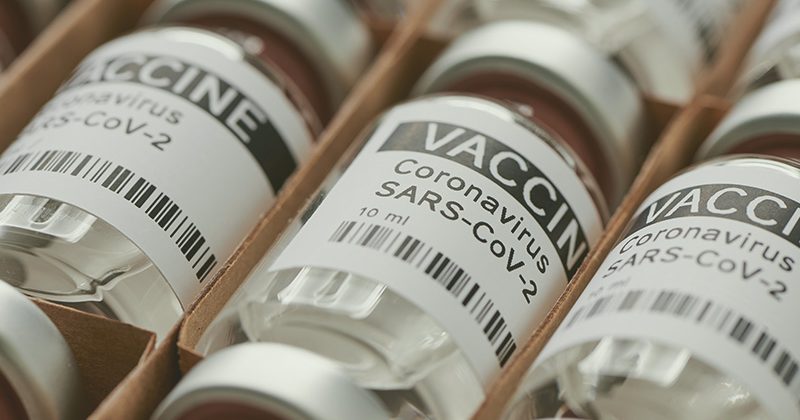COVAX, the worldwide initiative to accelerate the development and manufacture of Covid-19 vaccines, was set up in April 2020 and positioned as the global solution to ensure fair access to Covid-19 vaccines for all countries, regardless of national income level. It was an incredibly ambitious global health response addressing an unprecedented crisis during a highly febrile and rapidly changing context.
Published today, Itad’s evaluation of COVAX conducted in partnership with 3ie, highlights how the organisations and individuals involved in the initiative have worked tirelessly to make it a success. The evaluation report details the initiative’s successes and where it faced immense challenges and struggled to deliver on its ambitious vaccine delivery targets.

COVAX succeeded in raising more than $12 billion through international fundraising efforts and distributed almost 1 billion doses to 144 countries by the end of 2021. Although this was well below the two billion target, 87% (833 million) of these doses went to low- and middle-income countries which meant that COVAX came very close to meeting its target of 950 million doses for these countries. However, as detailed in the evaluation report, the initiative was hampered by limited vaccine supplies, vaccine hoarding in high-income countries, lack of political commitment to vaccine roll-out in some countries, and operational challenges.
Lessons for pandemic preparedness and response
The evaluation provides a detailed assessment of what has worked well and less well to date in the design, implementation, and results of the COVAX Facility and Advanced Market Commitment (AMC). It also presents a series of recommendations for future global health responses.
One of the core lessons of the evaluation was that any future mechanisms to ensure equitable access to vaccines in a pandemic will need to deliver faster and on a larger scale to overcome the forces of vaccine inequity.
Gavi (who co-led COVAX with the World Health Organization, the Coalition for Epidemic Preparedness Innovations, UNICEF) was well placed to respond to the Covid-19 pandemic, but the speed and scope of implementation created management, governance, and operational problems. The success of future initiatives will require greater emphasis on:
- Management systems and processes to engage countries.
- Transparency and accountability of decisions. This is crucial for engagement and effectiveness, especially if the involvement of relevant stakeholders is not feasible during the design of a pandemic response.
- Influencing high-income countries and pharmaceutical industry decisions to consider public health interests alongside national and commercial interests.
- Advocacy to help influence behaviour, alongside strategies such as political agreements.
Shaping future pandemic response
Gavi has confirmed that many of the report recommendations put forward by Itad have already been acted upon. In their management response to the report, Gavi said:
“We, the Gavi Secretariat, take our responsibility to contribute high quality, credible, and insightful evidence on the response to the COVID-19 pandemic seriously, and are pleased that such a robust independent report will be added to the public record, representing a significant contribution to preparing for future pandemics.”
Insights from our evaluation are informing Gavi’s ongoing work on Covid-19 vaccination including their 2021-25 strategy and thinking on future of the COVAX Facility and AMC.
The findings are also contributing to the wider global conversation on pandemic readiness and the coordination of future global pandemic responses. This has been illustrated by the high level of engagement with the evaluation from national governments, international philanthropies and global alliances in recent months.
Itad’s Sam McPherson who directed the evaluation said:
“We wish to extend our deep thanks to Gavi and the many stakeholders involved in this evaluation for their active engagement in the process and openness to critical reflection and learning.
We are delighted that the insights generated are helping to inform future responses to similar global health challenges, and we look forward to contributing to ongoing discussions on how lessons can be learned through evaluations like this one to help improve lives globally”.
Related resources:

